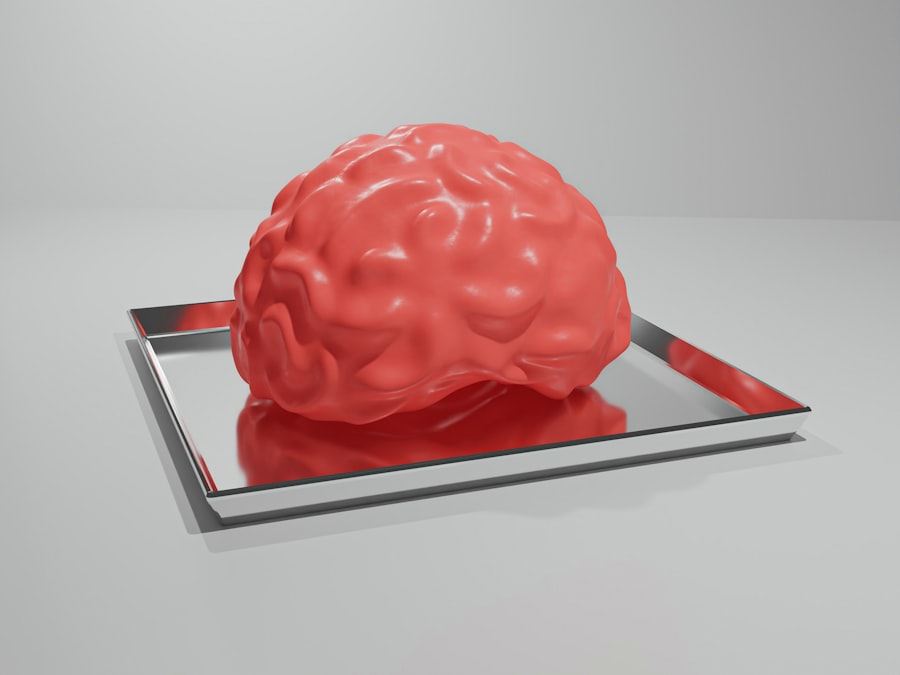Emotional abuse can leave deep, often invisible scars that affect not only your mental health but also your brain’s functioning. When you experience emotional abuse, your brain may undergo significant changes, particularly in areas responsible for emotional regulation and stress response. The constant exposure to manipulation, criticism, and emotional neglect can lead to alterations in neural pathways, making it difficult for you to process emotions and respond to stressors in a healthy way.
This can manifest as anxiety, depression, or even post-traumatic stress disorder (PTSD), as your brain struggles to cope with the trauma inflicted by the abuser. Moreover, the impact of emotional abuse can lead to a diminished sense of self-worth and self-esteem. You may find yourself doubting your abilities and feeling unworthy of love and respect.
This internalized negativity can create a cycle of self-blame and shame, further entrenching the emotional wounds. Understanding how emotional abuse affects your brain is crucial for recognizing the need for healing and recovery. By acknowledging these changes, you can begin to take steps toward reclaiming your mental health and well-being.
Key Takeaways
- Emotional abuse can have a significant impact on the brain, leading to long-term emotional and psychological consequences.
- Signs of emotional abuse include constant criticism, manipulation, and isolation from friends and family.
- Seeking professional help, such as therapy or counseling, is crucial for healing from emotional abuse.
- Building a support system of trusted friends, family, or support groups can provide essential emotional support.
- Practicing self-care, self-compassion, and mindfulness can aid in the healing process and promote emotional well-being.
Recognizing the Signs of Emotional Abuse
Recognizing the signs of emotional abuse is essential for breaking free from its grip. You might find yourself in a relationship where your partner frequently belittles you, dismisses your feelings, or uses guilt as a weapon. These behaviors can be subtle at first, making it challenging to identify them as abusive.
You may feel confused or question your reality, often wondering if you are overreacting or being too sensitive. It’s important to trust your instincts; if something feels off, it likely is. Another sign of emotional abuse is the isolation you may experience.
Your abuser might try to cut you off from friends and family, making you feel dependent on them for validation and support. This isolation can lead to feelings of loneliness and despair, further exacerbating the emotional turmoil you are experiencing. By recognizing these signs, you empower yourself to take action and seek help.
Understanding that emotional abuse is not just a personal issue but a serious violation of your rights can be the first step toward reclaiming your life.
Seeking Professional Help for Healing

Seeking professional help is a vital step in your healing journey after experiencing emotional abuse. A mental health professional can provide you with the tools and strategies needed to process your experiences and rebuild your self-esteem. Therapy offers a safe space where you can explore your feelings without judgment, allowing you to confront the pain caused by the abuse.
A trained therapist can help you understand the dynamics of emotional abuse and guide you in developing healthier coping mechanisms. In addition to individual therapy, group therapy can also be beneficial. Connecting with others who have experienced similar situations can foster a sense of community and understanding.
You may find comfort in sharing your story and hearing others’ experiences, which can help normalize your feelings and reduce feelings of isolation. Professional help is not just about addressing the past; it’s about equipping yourself with the skills necessary for a healthier future.
Building a Support System
| Support System Components | Metrics |
|---|---|
| Mentors | Number of mentors available |
| Networking Events | Frequency of networking events |
| Peer Support Groups | Number of participants in peer support groups |
| Professional Development Workshops | Number of workshops offered |
Building a support system is crucial for your recovery from emotional abuse. Surrounding yourself with people who understand your situation can provide you with the encouragement and validation you need during this challenging time. Friends and family members who are empathetic can offer a listening ear or a shoulder to cry on, helping you feel less alone in your struggles.
It’s important to reach out to those who uplift you rather than those who may inadvertently reinforce negative feelings. In addition to personal relationships, consider joining support groups or online communities focused on healing from emotional abuse. These platforms allow you to connect with individuals who share similar experiences, providing a sense of belonging and understanding.
Sharing your journey with others who have walked a similar path can be incredibly empowering and can help you realize that healing is possible.
Practicing Self-Care and Self-Compassion
Practicing self-care is essential for nurturing your mental health after experiencing emotional abuse. You may have spent years prioritizing someone else’s needs over your own, leading to neglect of your well-being. Now is the time to focus on yourself—physically, emotionally, and mentally.
Engage in activities that bring you joy and relaxation, whether it’s reading a book, taking long walks in nature, or indulging in a favorite hobby. These moments of self-care can help restore a sense of balance in your life. Self-compassion is equally important as you navigate the healing process.
Be gentle with yourself; recognize that healing takes time and that it’s okay to have setbacks along the way. Instead of criticizing yourself for feeling hurt or vulnerable, practice speaking to yourself with kindness and understanding. Acknowledge that what you experienced was not your fault and that you deserve love and respect.
By cultivating self-compassion, you create a nurturing environment that fosters healing and growth.
Engaging in Therapy and Counseling

Engaging in therapy or counseling is one of the most effective ways to address the emotional scars left by abuse. A therapist can help you unpack the complex emotions associated with your experiences, guiding you through the process of understanding how they have shaped your beliefs about yourself and others. Cognitive-behavioral therapy (CBT), for instance, can be particularly useful in challenging negative thought patterns that stem from emotional abuse.
These tools will empower you to respond to triggers more effectively and build resilience against future challenges. Remember that seeking help is not a sign of weakness; rather, it demonstrates strength and a commitment to reclaiming your life.
Exploring Mindfulness and Meditation
Exploring mindfulness and meditation can be transformative in your healing journey from emotional abuse. These practices encourage you to stay present in the moment, helping you detach from overwhelming emotions tied to past experiences. Mindfulness allows you to observe your thoughts without judgment, creating space for self-reflection and acceptance.
This practice can be particularly beneficial when dealing with anxiety or intrusive thoughts related to your trauma. Meditation offers an opportunity for deeper introspection and relaxation.
Whether through guided meditations or silent reflection, these practices can help ground you in the present moment, fostering a greater sense of control over your emotions and reactions.
Incorporating Healthy Lifestyle Changes
Incorporating healthy lifestyle changes is another vital aspect of your recovery from emotional abuse. Physical health is closely linked to mental well-being; therefore, adopting habits that promote physical fitness can significantly enhance your mood and overall outlook on life. Regular exercise releases endorphins—natural mood lifters—that can help combat feelings of sadness or anxiety stemming from past trauma.
Additionally, paying attention to your nutrition can also play a role in how you feel emotionally. A balanced diet rich in fruits, vegetables, whole grains, and lean proteins provides essential nutrients that support brain health and emotional stability. Staying hydrated and limiting processed foods can further enhance your physical well-being, creating a solid foundation for mental resilience.
Setting Boundaries and Asserting Personal Agency
Setting boundaries is crucial for reclaiming your personal agency after experiencing emotional abuse. You may have been conditioned to prioritize others’ needs over your own, leading to feelings of powerlessness. Learning to assert yourself by establishing clear boundaries allows you to protect your emotional space and prioritize your well-being.
This might involve communicating openly about what behaviors are unacceptable or distancing yourself from toxic relationships. Asserting personal agency means recognizing that you have the right to make choices that serve your best interests. It’s about reclaiming control over your life after feeling manipulated or controlled by an abuser.
By practicing assertiveness in various aspects of your life—whether at work, in friendships, or within family dynamics—you empower yourself to create healthier relationships built on mutual respect.
Processing and Expressing Emotions
Processing and expressing emotions is an essential part of healing from emotional abuse. You may have spent years suppressing feelings of anger, sadness, or confusion due to fear of judgment or rejection. Allowing yourself to feel these emotions is crucial for moving forward; they are valid responses to what you’ve endured.
Journaling can be an effective way to articulate these feelings—writing down your thoughts provides an outlet for expression while helping you gain clarity about your experiences. Additionally, consider exploring creative outlets such as art or music as forms of expression. Engaging in creative activities allows you to channel complex emotions into something tangible, providing both relief and insight into your healing journey.
Remember that expressing emotions does not make you weak; rather, it signifies strength as you confront the pain of the past.
Cultivating Resilience and Empowerment
Cultivating resilience is key to overcoming the effects of emotional abuse and reclaiming your life. Resilience involves developing the ability to bounce back from adversity while learning from experiences rather than being defined by them. As you navigate this journey, focus on building skills that enhance your adaptability—this might include problem-solving techniques or developing a growth mindset that embraces challenges as opportunities for growth.
Empowerment comes from recognizing your strength and capacity for change. As you heal from emotional abuse, take time to celebrate small victories along the way—whether it’s setting boundaries or expressing emotions more freely. Each step forward reinforces your ability to take control of your life and fosters a sense of agency that was previously stripped away by an abuser.
By cultivating resilience and empowerment, you pave the way for a brighter future filled with hope and possibility. In conclusion, healing from emotional abuse is a multifaceted journey that requires understanding its impact on your brain, recognizing signs of abuse, seeking professional help, building support systems, practicing self-care, engaging in therapy, exploring mindfulness, incorporating healthy lifestyle changes, setting boundaries, processing emotions, and cultivating resilience. Each step taken toward recovery is an act of courage that brings you closer to reclaiming your life and embracing a future filled with empowerment and joy.
Emotional abuse can leave deep scars that affect an individual’s mental well-being long after the abuse has ended. Healing the brain after such trauma involves a multifaceted approach, including therapy, self-care, and support from loved ones. An insightful article on this topic can be found on Unplugged Psychology’s website, which delves into the various strategies and therapies that can aid in recovery. For more information, you can read the full article by visiting Unplugged Psychology. This resource provides valuable insights into the healing process and offers guidance for those seeking to rebuild their mental health after experiencing emotional abuse.
🧠 Your Trauma Is Rewiring Your Brain: Here’s How to Undo It | A Neuroplasticity & Somatic Guide
FAQs
What is emotional abuse?
Emotional abuse is a pattern of behavior that involves manipulating, controlling, and belittling another person. It can include verbal attacks, threats, intimidation, and isolation, and can have long-lasting effects on a person’s mental and emotional well-being.
How does emotional abuse affect the brain?
Emotional abuse can have a significant impact on the brain, leading to changes in brain structure and function. It can result in increased levels of stress hormones, alterations in the brain’s reward system, and changes in the way the brain processes emotions and memories.
Can the brain heal after emotional abuse?
Yes, the brain has the capacity to heal and recover from the effects of emotional abuse. With the right support, therapy, and self-care, individuals can experience neuroplasticity, which is the brain’s ability to reorganize and form new neural connections.
What are some ways to support brain healing after emotional abuse?
Supporting brain healing after emotional abuse can involve seeking therapy, practicing self-care, engaging in activities that promote relaxation and stress reduction, and building a strong support network. It’s important to prioritize mental and emotional well-being and seek professional help if needed.
How long does it take for the brain to heal after emotional abuse?
The timeline for brain healing after emotional abuse can vary for each individual. It depends on factors such as the severity and duration of the abuse, the individual’s resilience, and the support and resources available. Healing is a gradual process and may take time, but with the right support, progress can be made.



